Fifty years after Satyajit Ray created a Bengali detective, who became an instant hero with readers across the world, a bunch of writers with memories of Feluda retrace his popularity that defied the passage of time
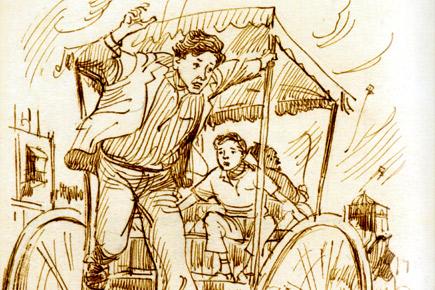
An illustration by Satyajit Ray for the story, Badshahi Angti
![]() In 1965, Kolkata was Calcutta. It was a time of unceasing unrest; life was often halted by demonstrations on streets as strikes and events of splintering gory violence captured the imagination a city that was half way through a decade of tumultuous political upheaval.
In 1965, Kolkata was Calcutta. It was a time of unceasing unrest; life was often halted by demonstrations on streets as strikes and events of splintering gory violence captured the imagination a city that was half way through a decade of tumultuous political upheaval.
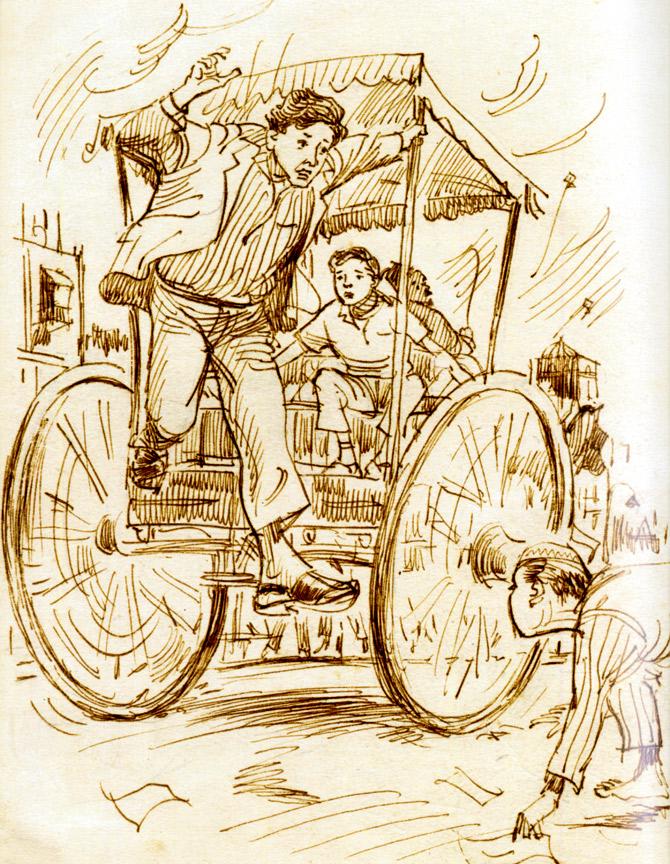
An illustration by Satyajit Ray for the story, Badshahi Angti. Pic courtesy/Feluda@50, HarperCollins
ADVERTISEMENT
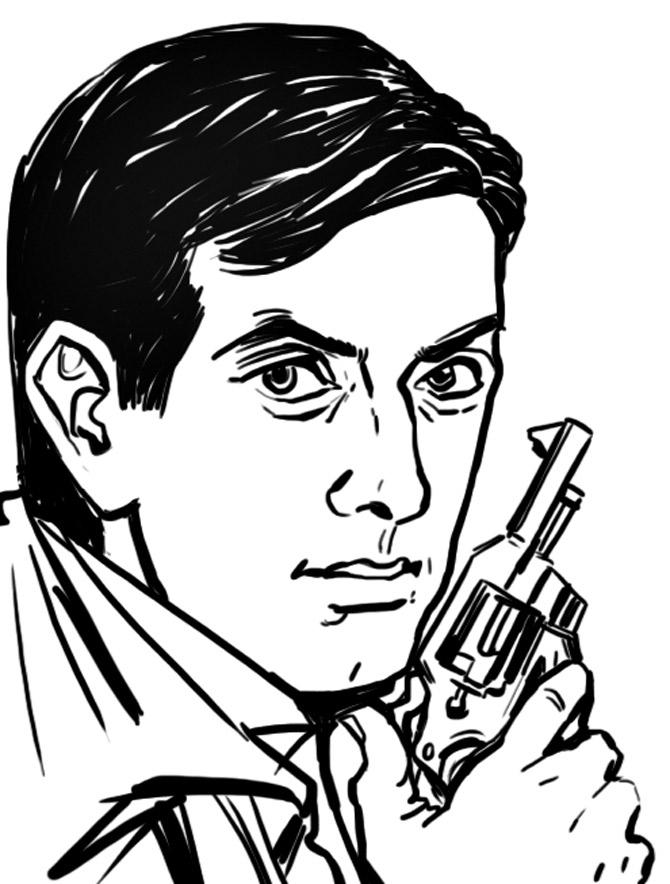
It was also the year when Pradosh C Mitter was born in a quaint room crowded with creatures of the imagination. Mitter, introduced as a 27-year old, lived in a joint family in older Kolkata and had a strong bond of affection with his teenage cousin. He practiced yoga regularly, smoked Charminar, was acutely aware of the events of the world and was a detective par excellence, as narrated by his cousin, Tapesh Ranjan who, and soon millions of readers and viewers, called him Feluda.
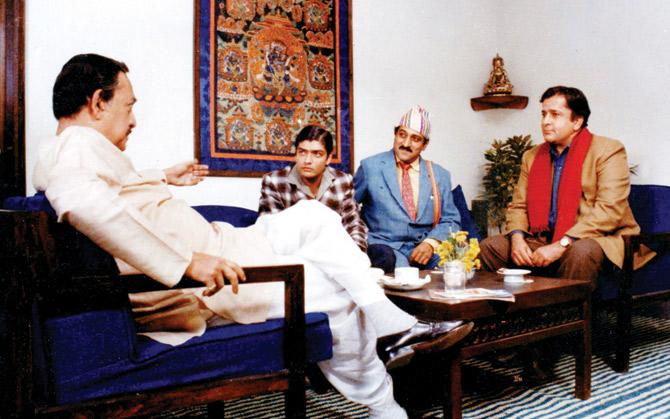
Sandip Ray, Satyajit Ray’s son had made Kissa Kathmadu Ka (Hindi, 1986), based on Joto Kando Kathmandute. It featured Shashi Kapoor, and was made for Doordarshan
Fifty years after his first appearance in the Sandesh magazine, his popularity shows no sign of ebbing as notwithstanding a slump in the Bengali film industry, even now, a Feluda retrospective runs to packed houses in Kolkata.
![]()
The iconic camel ride scene in the film Sonar Kella with Soumitra Chatterjee
This is the phenomenon that the collection, Feluda@50 curated and edited by Boria Majumdar explores. In his introductory essay, Decoding Feluda: What makes the fifty-year-old tick? Majumdar writes, "…the one count where the Bengali looks homeward is in our allegiance to literary sleuths. Not that the biggies from around the world are absent from our bookshelves. From the father of all detectives, Sherlock Holmes, to Agatha Christie’s little Belgian superman, Hercule Poirot, to the quintessentially British inspector Morse or the Swedish Kurt Wallander — they are all detectives with impeccable credentials. For us, however, these men were never the primary draw. All we ever wanted to be was Feluda."
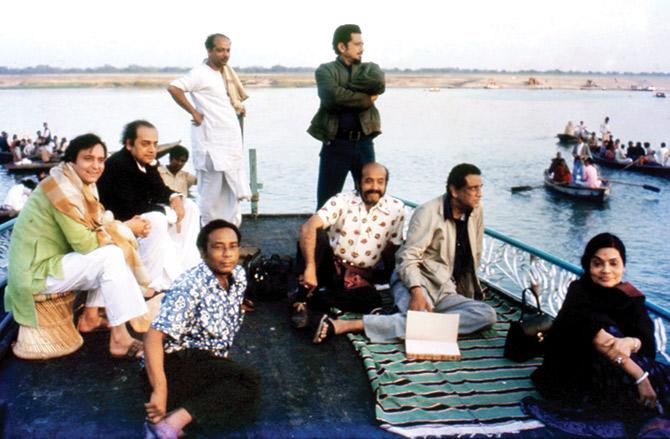
Soumitra Chatterjee (seated, in green) and Utpal Dutt (seated, in black) with Ray (seated, looking out) during a shoot in Varanasi. His wife Bijoya Ray is in the foreground
He, however, points out that the tradition of mystery writing in Bengali predates Feluda. Like Byomkesh Bakshi by Saharadindu Bandyopadhyay and before him, characters by Hemendra Kumar Roy. But Feluda, he points out, has lived on to be more popular and entered the everyday of the Bengali population like no other such character has.
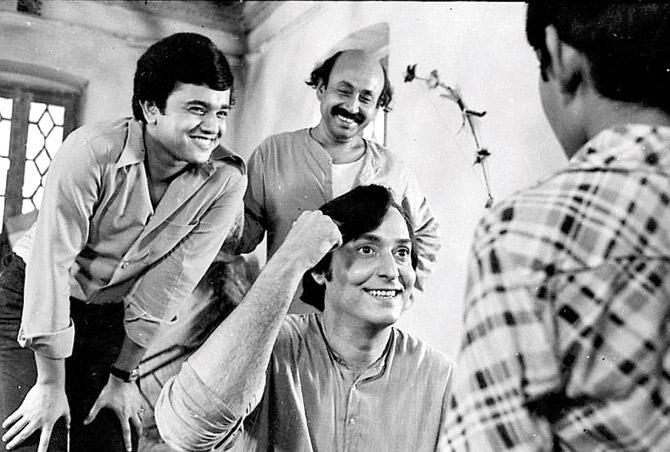
Soumitra Chatterjee as Feluda, Santosh Dutta as Jatayu and Siddhartha Chatterjee as Topshe in Joi Baba Felunath Pics courtesy/Feluda@50, HarperCollins
In an interview with Majumdar, Soumitra Chatterjee, who played Feluda in the Ray- Feluda movies — Sonar Kella and Jai Baba Felunath — to such popularity that children would shout Feluda, when they spotted him on the streets, pointed out that though Byomkesh is more literary and matured it loses out to Feluda in simplicity.
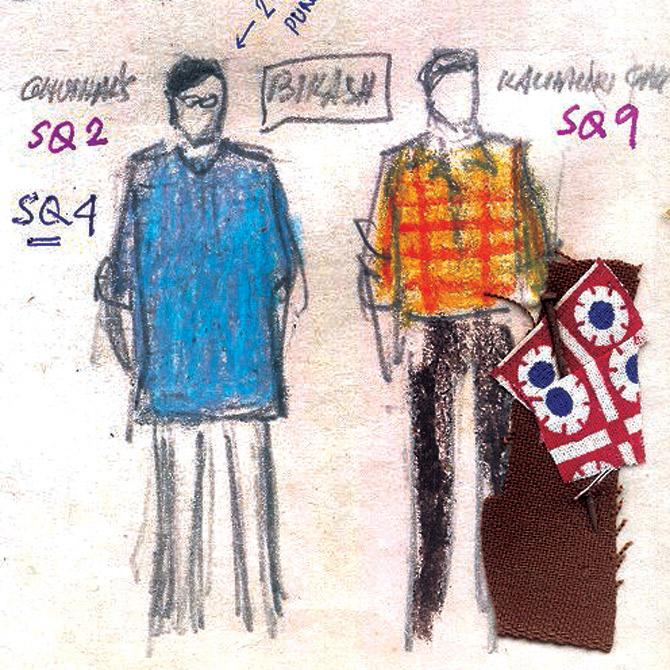
The storyboard for Joi Baba Felunath sketched by Satyajit Ray
In fact, it was this need for a simple story that kept Feluda out of the political chaos of the time. He has no political stance and no opinion on events outside.
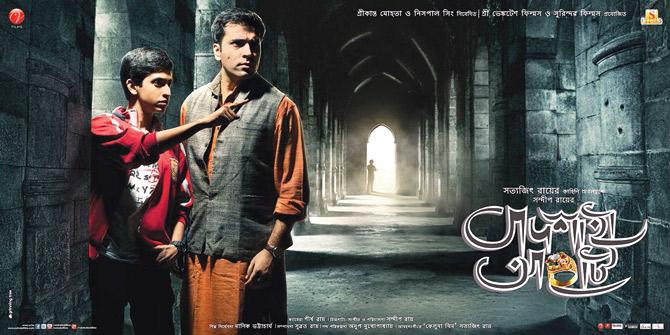
The Sandip Ray Feluda film has become an important marker of Kolkata’s annual cultural calender. With Badshahi Angti, a new aactor took over as Feluda. Abir Chattrejee, who plays Feluda and Sourav Das, the new Topshe in picture
In his essay, Felu Mittir: Between Bhadrolok and Chhotolok, author Indrajit Hazra points out that the reason for insulating Feluda was because Ray was unhappy with what was happening around him. He writes, "...Which brings us to the nub of the matter: Feluda was the crystallisation of Ray’s unease with Bengali middle-class straitjacketing and delusional self-imaging, as well as with his natural distaste for the populist, the garish, that somewhere in his mind, slid down to the all-too-visible lumpen. Felu Mittir holds the key to maintaining an equal distance from the ossified bhadrolok (cultured man) and the rampaging chhotolok (lumpen)."
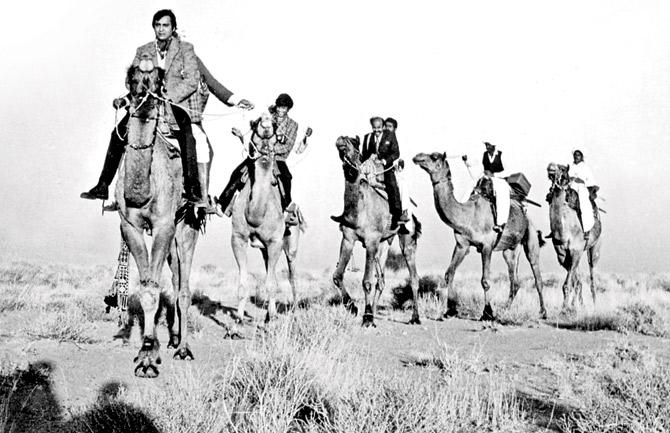
The memorable camel ride scene from the film Sonar Kella.Pics courtesy Feluda@50, HarperCollins
And Felu Mittir became the elder brother everyone wanted to have, and eventually what the young readers wanted to grow up to, points out Sabyasachi Chakraborty, who played Feluda when Sandip Ray, Satyajit Ray’s son, brought the sleuth back on television with the telefilm, Baksho Rahashya (1996). Chakraborty mentions that Feluda to him was a guru of sorts; he would imagine what Feluda would have done in a particular situation and act accordingly. ".... (in my early teens) Girls inevitably would put me off. I was firm I would not go to a film with girls. Rather, I preferred to be on my own, or go watch a film with only my male friends. There was no girl in Feluda’s life and I had to do the same," he recounted.
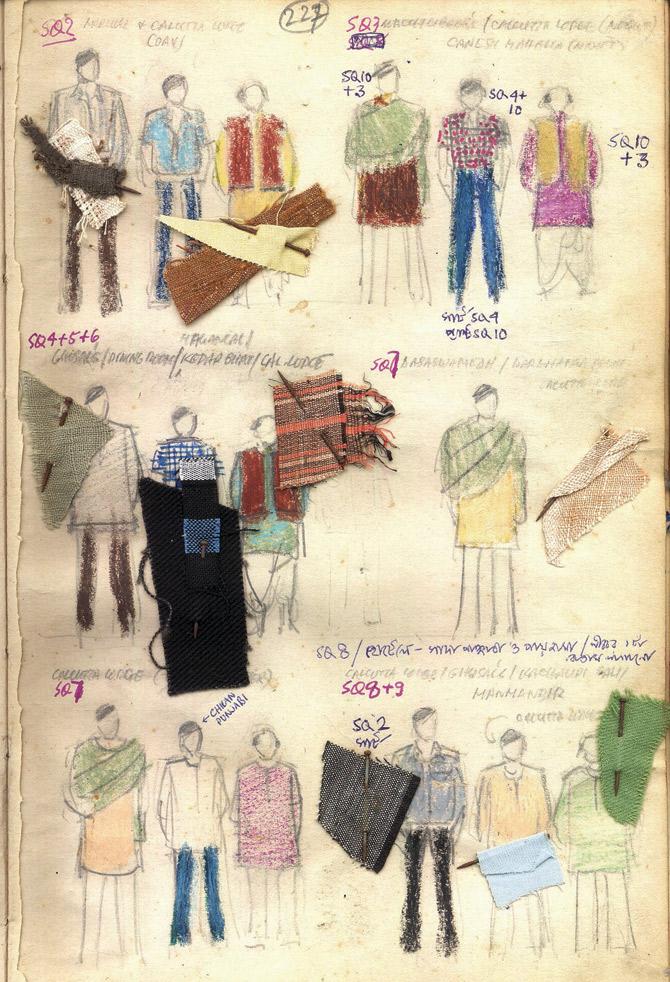
Another image from the storyboard for Joi Baba Felunath sketched by Ray
But even with the near absence of women in these stories, his fan following is across gender till date. Rachona Majumdar, professor at Chicago University, points out the secret lies in the narrative voice. She explains that the language of Topshe, though criticized for it, has a civil restraint to it, which would "make him popular with the good girls" and she identifies with it. She explains that though not effete, the voice of Topshe is never overtly male easing in female readers. "Perhaps many of them, like myself, have often mused ‘I want to be Topshe’ and returned to Feluda books time and again," she writes.
Feluda@50, edited and curated by Boria Majumdar, Harper Collins, Rs 299. Available at leading bookstores and estores.
 Subscribe today by clicking the link and stay updated with the latest news!" Click here!
Subscribe today by clicking the link and stay updated with the latest news!" Click here!







